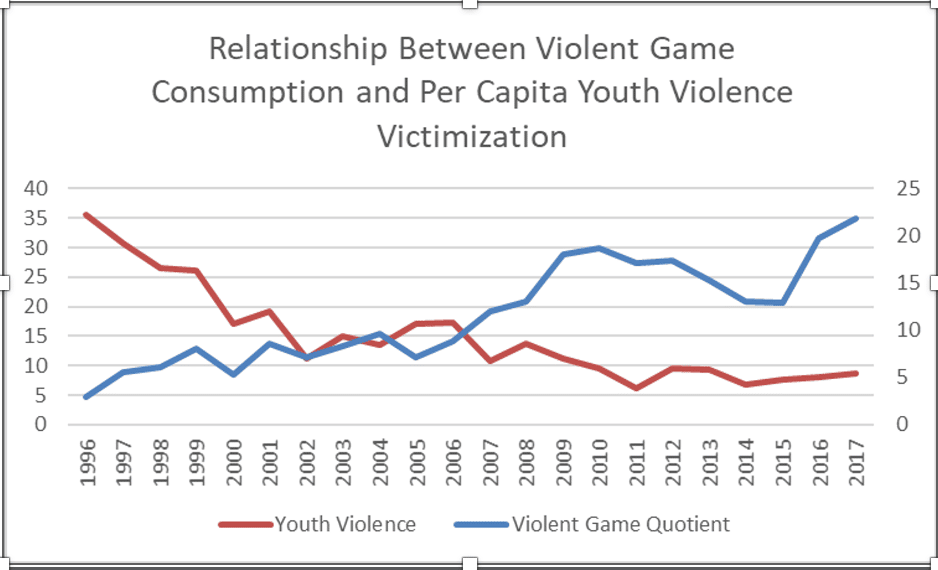Table of Contents
This holiday season, there’s a good chance your family got a new video game. Video game spending grew again from 2021 to 2022, although not at the frenetic pace of 2020 when everyone was quarantined inside. This increase has led to some expectancy of video games and created an interesting cognitive dissonance.
When you got the video game, whether it was you unwrapping the package or someone else, what was the first thought that came to mind? Excitement? Trepidation? Fear? For some, anxiety and fear might have been unwrapped, perhaps from past experiences, concerns about content, or worries about video games and mindless screen time.
Early Research on Video Games
Some of those concerns may stem from issues in research on video games. Early video game research made all sorts of claims, like Dr. Gerald Driessen, a psychologist who said there was a link between violent video games and real-life violence when studying the 1975 black-and-white game Death Race. (Markey & Ferguson, 2014). In the game, players could drive their cars over stick-figure pedestrians. Driessen predicted this would cause real-life hit-and-runs, but of course, that did not happen.
You may chuckle at the idea of a simple arcade game influencing people to murder pedestrians—but bias and misinformation around video games persists.
Struggles With Video Game Perception
Part of the struggles with our perceptions of games is that video game research, like other studies in social science, struggles with causality. Did the X factor cause the behavior, or is there merely a correlation?
Dr. Christopher Fergugon, who has researched this topic for decades, did a meta-analysis on this topic with Dr. Aaron Drummond and Dr. James Sauer. The researchers, analyzing 28 samples that included 21,000 youth, found that “longitudinal studies do not appear to support substantive long-term links between aggressive game content and youth aggression.” The researchers in their abstract then call out the continuing research attaching causation to correlation: “Correlations between aggressive game content and youth aggression appear better explained by methodological weaknesses and researcher expectancy effects than true effects in the real world.” (Drummond, Sauer & Ferguson, 2020)
Are we, as educators, having our own “expectancy effects”? When we open that video game or hear our students talking about one, do we reach with negativity or curiosity?
Dr. Ferguson recently said, “We’ve really moved past the time when games can be thought of as dangerous. Games are wonderful at holding kids’ attention. By doing so, they make excellent platforms for providing knowledge to students via engaging games.”

Transferring Learning Through Video Games
One way that educators can use games to hold their student’s attention is to try to transfer their interest in video games into the classroom. This is the concept of Transfer of Learning, and there is some research to support video games as a source for that learning. (Lieberman et. al, 2014) This is why games like Death Race, or the modern version, Grand Theft Auto V, are not causing rampant pedestrian death. We don’t transfer the “knowledge” of escaping law enforcement in a souped-up Impala into real life. But we may use that transfer of learning in other situations.
For example, consider the winner of the 2022 Game Awards category of “Games for Impact,” As Dusk Falls. This interactive narrative game explores themes of family conflict, mental health, and more as the player makes choices that have consequences for the story and game. While too mature for younger students, older ones may identify with some of those themes and the characters, and the game could be a starting point to transfer that learning into their real life.
New research on video games is pushing back on the negative narratives. But that research doesn’t always get reflected in our media, homes, or classrooms. So if you got a new game, hear your students talking about one, or hear a claim that video games cause X, step back and think about your expectations and biases.
About The Author
Carrie Rogers-Whitehead is the founder of Digital Respons-Ability, a mission-based company that teaches digital citizenship to tens of thousands of parents, students, and educators. For a deeper dive into gaming research and games in education, check out this free webinar with Dr. Christopher Ferguson and Carrie with EdWeb.net.
References:
- Lieberman, Debra & Biely, Erica & Thai, Chan & Peinado, Susana. (2014). Transfer of Learning from Video Game Play to the Classroom.
- Markey, Patrick M., and Christopher J. Ferguson. Moral Combat: Why the War on Violent
- Video Games Is Wrong. Dallas, TX: BenBella Books, 2017.
- Drummond, A., Sauer, J.D., & Ferguson, C.J.(2020). Do longitudinal studies support long-term relationships between aggressive gameplay and youth aggressive behavior? A meta-analytic examination. Royal Society Open Science.





